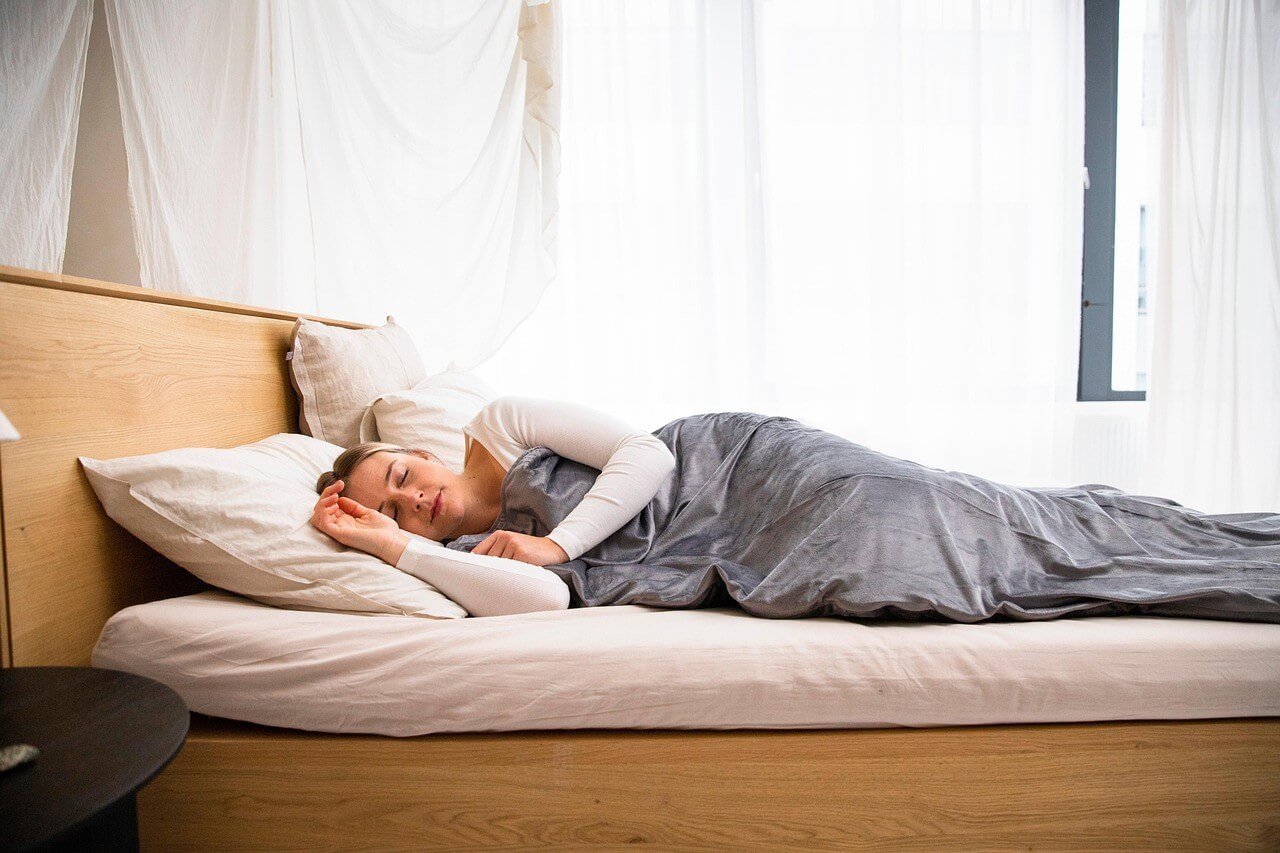
You wake up after a night of poor sleep, stumbling out of bed with your eyes barely open, trying to start your day. You put on your clothes, only to realize your sweater is inside out and backward—a clear sign of the lack of rest you had the night before. You head down to the kitchen, hoping that a cup of coffee—or three—might help shake off the grogginess. The caffeine offers some relief, but you know it won’t fix everything.
You get into your car and head to the office, where you sit in front of your computer, eyes dry, struggling to stay awake. The day drags on. You manage a quick lunch break, but by 1:00 PM, you’re starting to feel like a nap under your desk wouldn’t be the worst idea. Still, there’s more work to be done, and you know you need to keep pushing through. When it’s finally time to leave, you pack up your things, head home, and feel a wave of relief as you cross the threshold of your house.
You heat up dinner and settle in on the couch for a marathon of your favorite show. One episode leads to another, and before you know it, it’s already midnight. You slowly make your way to your bedroom and run through the minimal tasks of your sleep routine: change into pajamas, brush your teeth, apply moisturizer, and lie down. Your phone is plugged into its charger beside your bed, quietly urging you to pick it up and scroll. You give in, swiping mindlessly through your newsfeed, lost in the digital world until, finally, your to-do list for tomorrow flashes before you and you know it’s time to sleep. You eventually set your phone down and close your eyes. You toss and turn for a bit before finally getting comfortable. By now, it’s likely 1:00 AM or possibly later. Your eyelids grow heavy, and sleep is pulling you in.
Then, the dreaded chime of your alarm clock sounds, and it’s 7:00 AM—time to start the day all over again.
Does this story sound familiar? Perhaps it mirrors your own sleep routine and the resulting fatigue throughout the day. If it does, it’s time to reassess how your sleep habits impact both your productivity and your overall health. A high-quality sleep routine is essential for a healthy brain and nervous system. Sleep gives your body and mind the opportunity to recharge. Without it, you risk setting yourself up for a host of issues.
A restful night’s sleep starts with a routine. Routines help us build strong habits, and making sure your sleep routine is both healthy and manageable will increase the likelihood of sticking to it.
- Set a “bedtime” for yourself and stick to it.
While a bedtime may seem like something only children have, establishing a consistent time to be in bed can help prioritize your sleep. The recommended amount of sleep varies person to person, but the general recommendation is between 7 and 9 hours. Keeping that in mind, also consider when you want to wake up in the morning to decide when you should be asleep by. - Ensure your bedroom is quiet, dark, and cool.
Creating an environment conducive to restful sleep is key to ensuring quality rest. A quieter environment is more conducive to sleep than, say, a live concert. However, some people benefit from ambient noise or light music while they fall asleep. Aim to keep your sleep environment relatively free of loud noise. Your body’s natural instinct to wake or sleep, known as the circadian rhythm, is influenced greatly by light or darkness. Making your sleep environment dark with black out curtains or turning off the lights can let your body know it’s time for sleep. Lastly, keeping where you sleep relatively cool helps your body’s core temperature lower which improves overall rest. - Avoid caffeine close to bedtime.
Caffeine is a stimulant, and one of its main effects is making you feel alert and energized. Drinking caffeine too close to bedtime can make it difficult for your nervous system to settle down into sleep. Dr. Shannon Kilgore, a neurologist at the Veterans Affairs Health Care System in Palo Alto, California and Stanford University School of Medicine, suggests that depending on your typical intake of caffeine, it’s effect on your sleep habits can vary. However, a rule of thumb for most people should avoid caffeinated drinks after 2:00 PM. - Limit screen time before bed.
It can be hard to put down your phone, tablet, or turn off the TV, especially if they’re close to your bed. Studies show that blue light from screens can interfere with melatonin production, which is vital for regulating your sleep cycle. However, blue light isn’t the only part of scrolling that affects your sleep. Sleep medicine expert Dr. Michelle Drerup suggests that the content you find yourself scrolling through can have even more of an impact on your central nervous system than blue light from the screentime alone. The images and posts you look through can be mentally stimulating which can signal alertness in your nervous system, just like the blue light from the screen. Try to avoid any screens (phones, tablets, TV, etc.) for about an hour before bedtime. - Consult with a professional if sleep issues persist.
If you notice a recurring pattern of difficulty sleeping, it’s important to speak with a healthcare provider who can help identify potential causes and offer solutions.
Maintaining a consistent sleep routine can have a transformative effect on your health. Sleep provides numerous benefits that can’t be easily replicated by other means. By allowing yourself to rest each night with a full night’s sleep, you’re giving it the chance to maximize restorative healing for both your body and mind.
